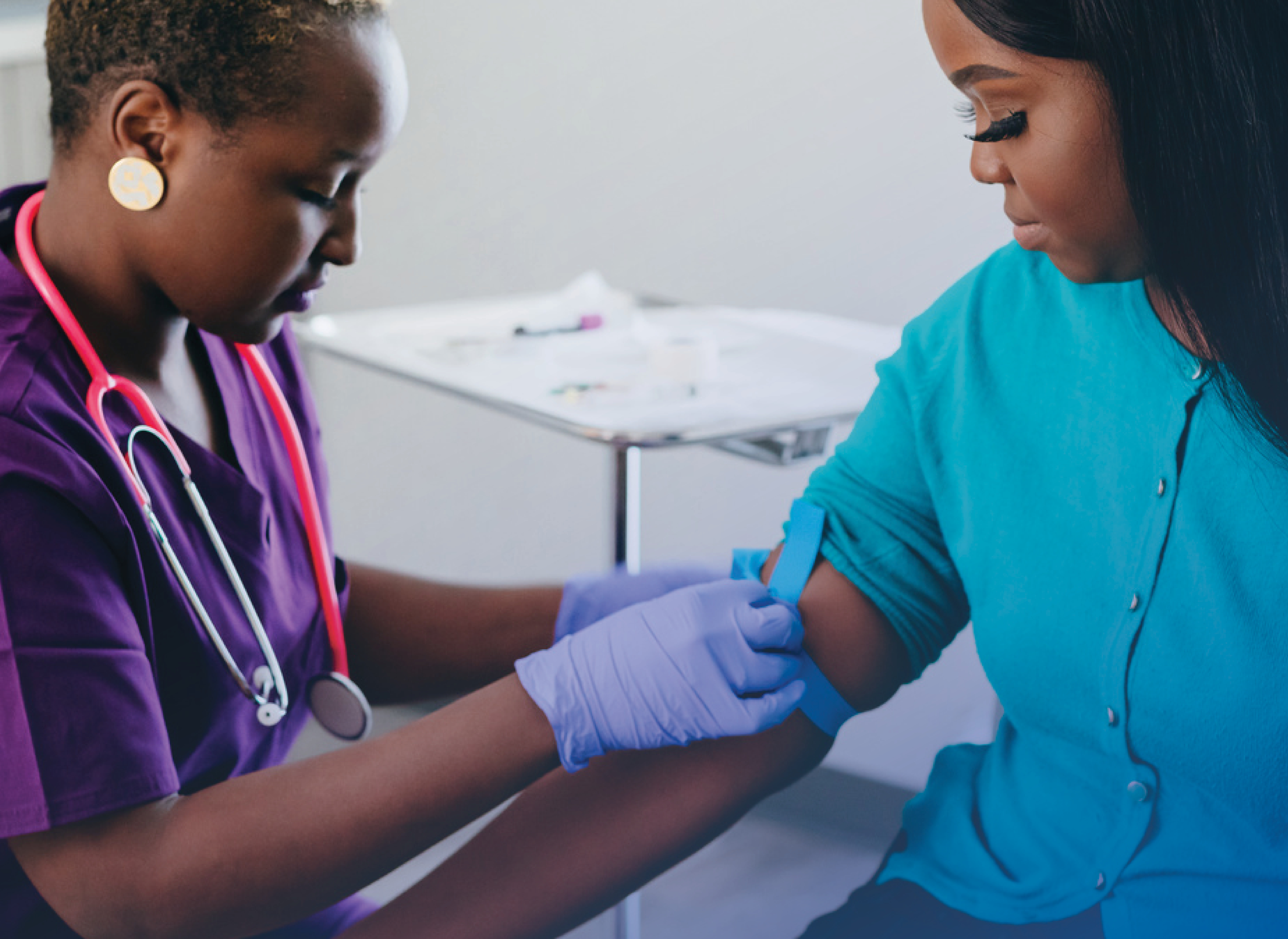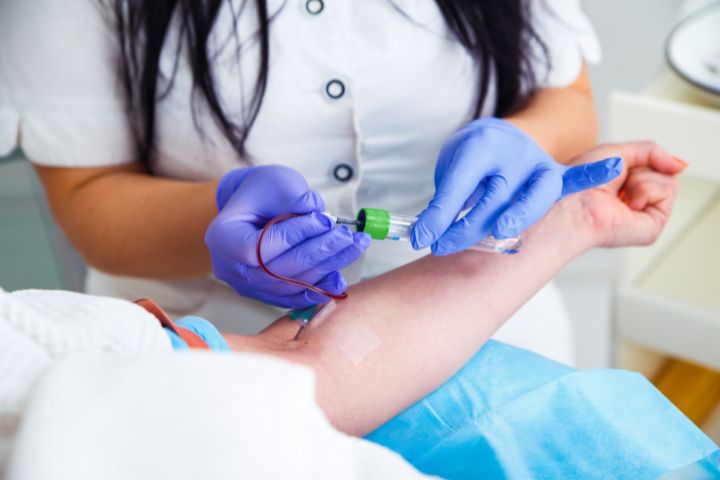Phlebotomy Classes Near Me: How to Find the Right One
Phlebotomy Classes Near Me: How to Find the Right One
Blog Article
The Course to Qualification: Understanding the Phlebotomy Training Program Journey and Its Value
As you consider the course to qualification in phlebotomy, it's crucial to recognize the function you'll play in medical care. Your training will cover necessary skills, from blood collection techniques to patient communication.

The Function of Phlebotomists in Medical Care
Phlebotomists play a necessary duty in the healthcare system, serving as the essential web link in between clients and crucial diagnostic screening. You'll carry out blood draws, guaranteeing samples are accumulated accurately and safely. Your know-how helps in detecting clinical conditions, keeping track of health, and directing therapy choices.
In your daily communications, you'll need to establish count on with people, making them feel comfortable throughout what could be a stressful experience. You are accountable for identifying and dealing with examples meticulously to stop contamination or errors, which can influence examination outcomes.
Yet, you'll frequently work along with doctors and nurses, communicating essential information concerning people' conditions. Your function is essential in preserving the process in healthcare setups, guaranteeing timely and exact results. By grasping your skills, you contribute meaningfully to person treatment, making you an essential part of the clinical team. Welcoming this duty is essential to your success as a phlebotomist.
Introduction of Phlebotomy Training Programs
When exploring phlebotomy training programs, you'll locate different types created to fit different schedules and discovering designs. Each program helps you develop necessary abilities like blood collection and client interaction. Recognizing these alternatives is crucial to choosing the ideal course for your profession.
Kinds Of Training Programs
A number of kinds of training programs are readily available for those looking to become efficient in phlebotomy. In addition, some hospitals and clinics supply on-the-job training programs, offering functional experience while you learn. Whatever course you select, each program aims to furnish you with the required skills for an effective phlebotomy occupation.

Secret Abilities Developed
Understanding phlebotomy needs a set of vital abilities that are created with extensive training programs. Additionally, interaction abilities are basic; you'll need to interact with patients, clarify procedures, and placed them at simplicity. Each of these skills is necessary for your success as a certified phlebotomist, making you a useful asset in any kind of medical care setup.
Trick Components of a Phlebotomy Course
In a phlebotomy program, you'll concentrate on vital subjects that prepared for your future career. You'll take part in hands-on training that permits you to apply what you've found out in real-world setups. Both the core educational program and practical experience are important for your success as a phlebotomist.
Curriculum Introduction
While pursuing a phlebotomy training course, you'll experience a curriculum created to furnish you with basic skills and knowledge. Phlebotomy school. This curriculum usually includes anatomy and physiology, concentrating on the blood circulation system and understanding blood parts. You'll additionally learn more about different sorts of blood collection methods, including venipuncture and capillary puncture strategies
In addition, infection control and safety methods are important elements, ensuring you know just how to keep a sterilized environment. You'll research patient interaction, emphasizing communication and empathy, which are crucial for alleviating patient anxiety. Ultimately, ethical and legal considerations will certainly be dealt with, preparing you for real-world obligations. This foundational knowledge will enable you to succeed as a phlebotomist and give quality care in medical setups.
Hands-On Training Experience
Getting hands-on experience is a crucial part of your phlebotomy training course. This practical training enables you to use what you've discovered in a real-world setting, enhancing your abilities and self-confidence. You'll exercise venipuncture methods, find out just how to take care of different sorts of samplings, and obtain accustomed to the tools made use of in the field. Under the guidance of seasoned teachers, you'll refine your skills, guaranteeing you're prepared for any type of circumstance you might face.
Additionally, you'll obtain the chance to engage with patients, which is important for creating your interaction abilities. This combination of technical effectiveness and social abilities is important for your success as a licensed phlebotomist. Ultimately, hands-on training is where theory satisfies technique, strengthening your understanding and readiness for accreditation.
Accreditation and Licensing Needs
Before you can begin your career in phlebotomy, it is important to understand the accreditation imp source and licensing demands that differ by state. The majority of states need phlebotomists to hold an accreditation from a recognized organization, such as the National Phlebotomy Association or the American Society for Professional Pathology. These qualifications typically include passing an examination that checks your understanding and abilities in the area.
Along with certification, some states have details licensing requirements. You may need to finish a particular number of hours in clinical technique, submit evidence of training, or undertake a background check. It is very important to research your state's policies to ensure you meet all necessary requirements.
Remaining informed regarding these requirements not just aids you secure a position but also boosts your integrity as a professional. By meeting these requirements, you'll be well on your way to an effective career in phlebotomy.
Hands-On Training and Practical Experience
Hands-on training and practical experience are essential components of your phlebotomy education, as they permit you to use theoretical understanding in real-world circumstances. During your training, you'll involve in supervised venipuncture, discover appropriate methods, and become accustomed to various blood collection equipment. This direct participation is crucial for constructing your self-confidence and honing your abilities.
You'll function closely with skilled experts who can assist you via the nuances of client communication and example handling. Each session not only reinforces your understanding however also prepares you for the hectic setting of medical care settings.
Additionally, numerous programs integrate professional turnings, allowing you to experience varied setups, from hospitals to outpatient clinics. This exposure aids you adjust to different difficulties and individual requirements, ensuring you're well-prepared for your future function. Welcome these opportunities, as they're important to coming to be a proficient and caring phlebotomist.
Difficulties Encountered During Training
While obtaining hands-on experience is necessary, it's important to recognize the difficulties that can develop throughout your phlebotomy training. Additionally, mastering the skills required for blood draws takes technique; you may battle with method originally.
Time administration can likewise check that be a difficulty, as balancing concept, practical sessions, and individual commitments can feel daunting. You might deal with differing finding out rates among your peers, causing feelings of self-doubt if you assume you're falling behind. Adapting to the different individualities of trainers can be challenging, as each might have a distinct teaching design.
Identifying these challenges at an early stage can prepare you for success and aid you establish strength throughout your training trip.
Job Opportunities After Qualification

As you acquire experience, you may even consider concentrating on locations like pediatric or geriatric phlebotomy, dealing with specific patient needs. Some phlebotomists choose to progress their careers by becoming laboratory specialists or seeking more education and learning in health care areas.
In addition, your certification can lead to roles in training or overseeing brand-new phlebotomists, permitting you to share your understanding. With the medical care market continually growing, your skills will always remain in demand, leading the means for a steady and satisfying occupation. Accept the possibilities waiting for you!
Regularly Asked Questions
What Is the Typical Period of a Phlebotomy Training Training Course?
Phlebotomy training courses commonly last around 4 to eight weeks. You'll participate in hands-on technique, class instruction, and online knowing. Completing this training prepares you for accreditation and a satisfying profession in medical care.
Are Online Phlebotomy Courses Available?
Yes, online phlebotomy training courses are readily available. They supply versatility and ease, permitting you to study at your very own rate. Simply verify the program is recognized to fulfill qualification requirements and gain valuable skills for your job.
Just How Much Does Phlebotomy Training Normally Price?
Phlebotomy training usually sets you back in between $700 and $2,500, depending on the program and place. You need to think about variables like course length, included products, and hands-on experience when selecting the appropriate training for you.
What Prevail Prerequisites for Phlebotomy Training?
Common requirements for phlebotomy training commonly include a high additional info school diploma or GED, booster shots, and a history check. Some programs might likewise require fundamental healthcare expertise or certifications, guaranteeing you're gotten ready for hands-on training.
Can I Work While Finishing My Phlebotomy Training?
Yes, you can work while finishing your phlebotomy training. Many pupils balance jobs with their research studies, but make sure to manage your time efficiently to assure you satisfy both job and training commitments efficiently.
Report this page